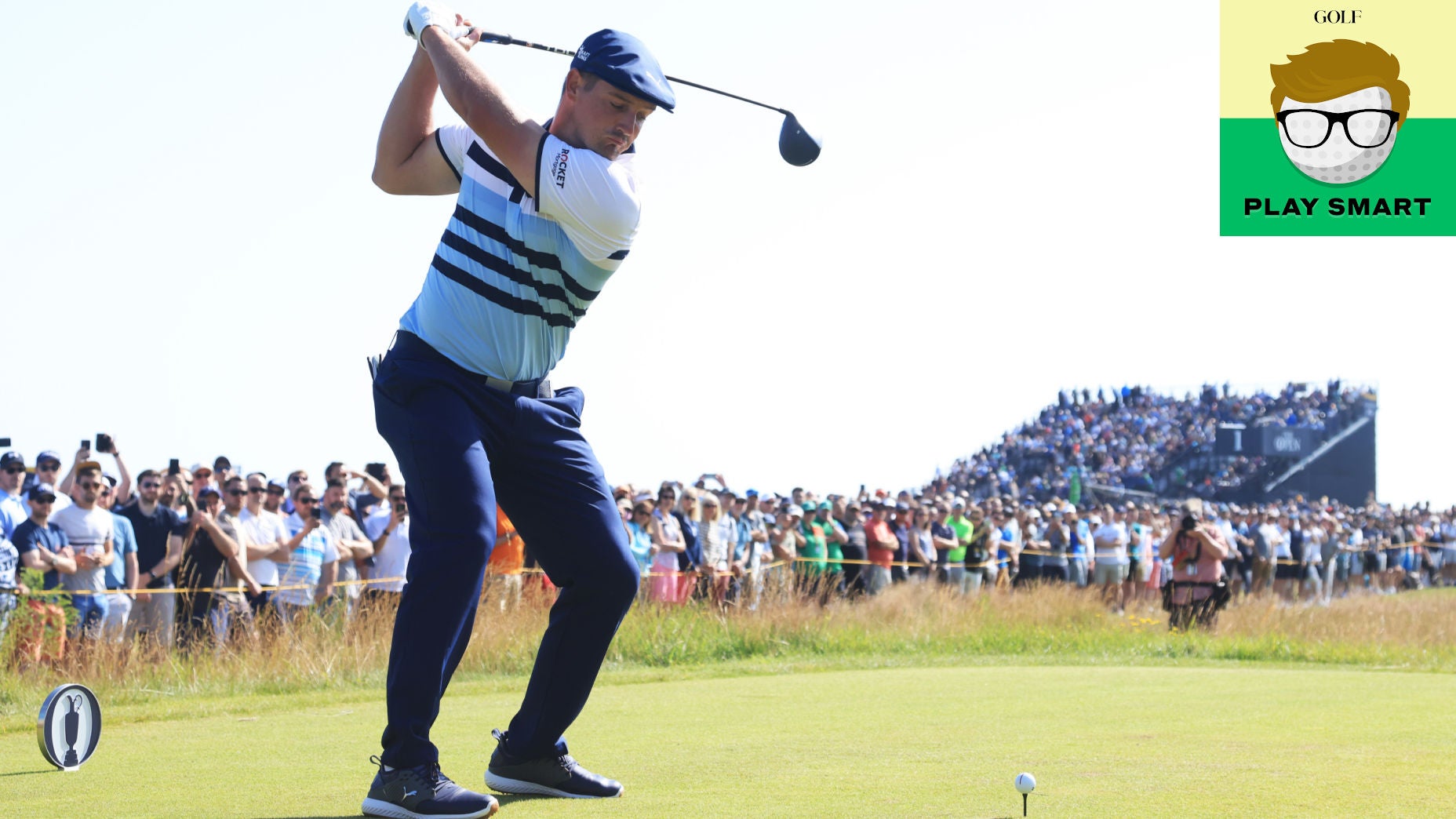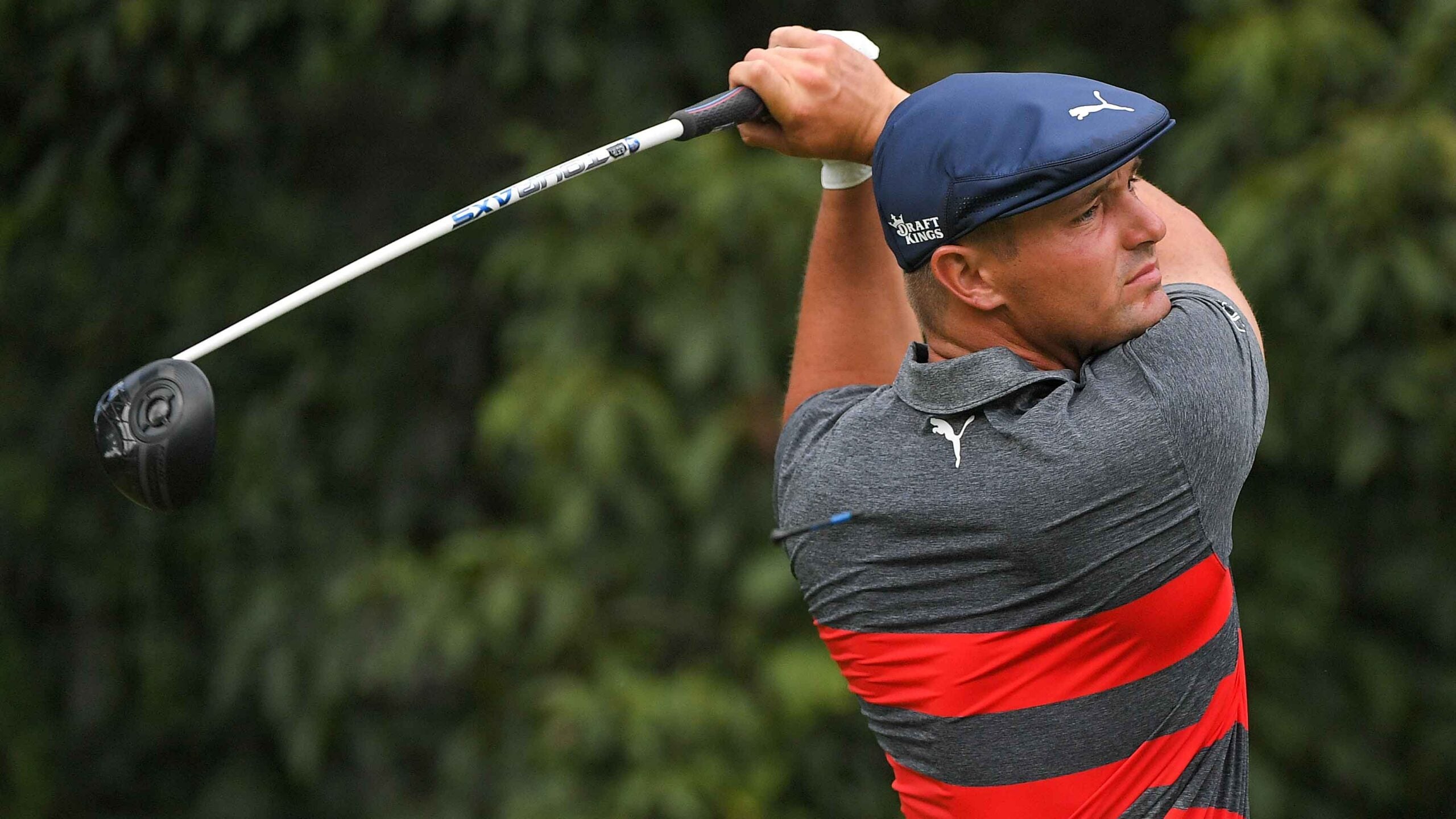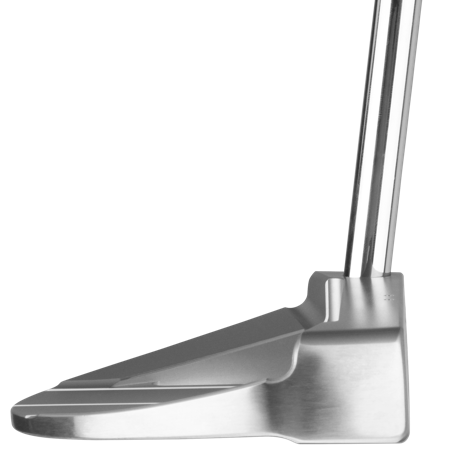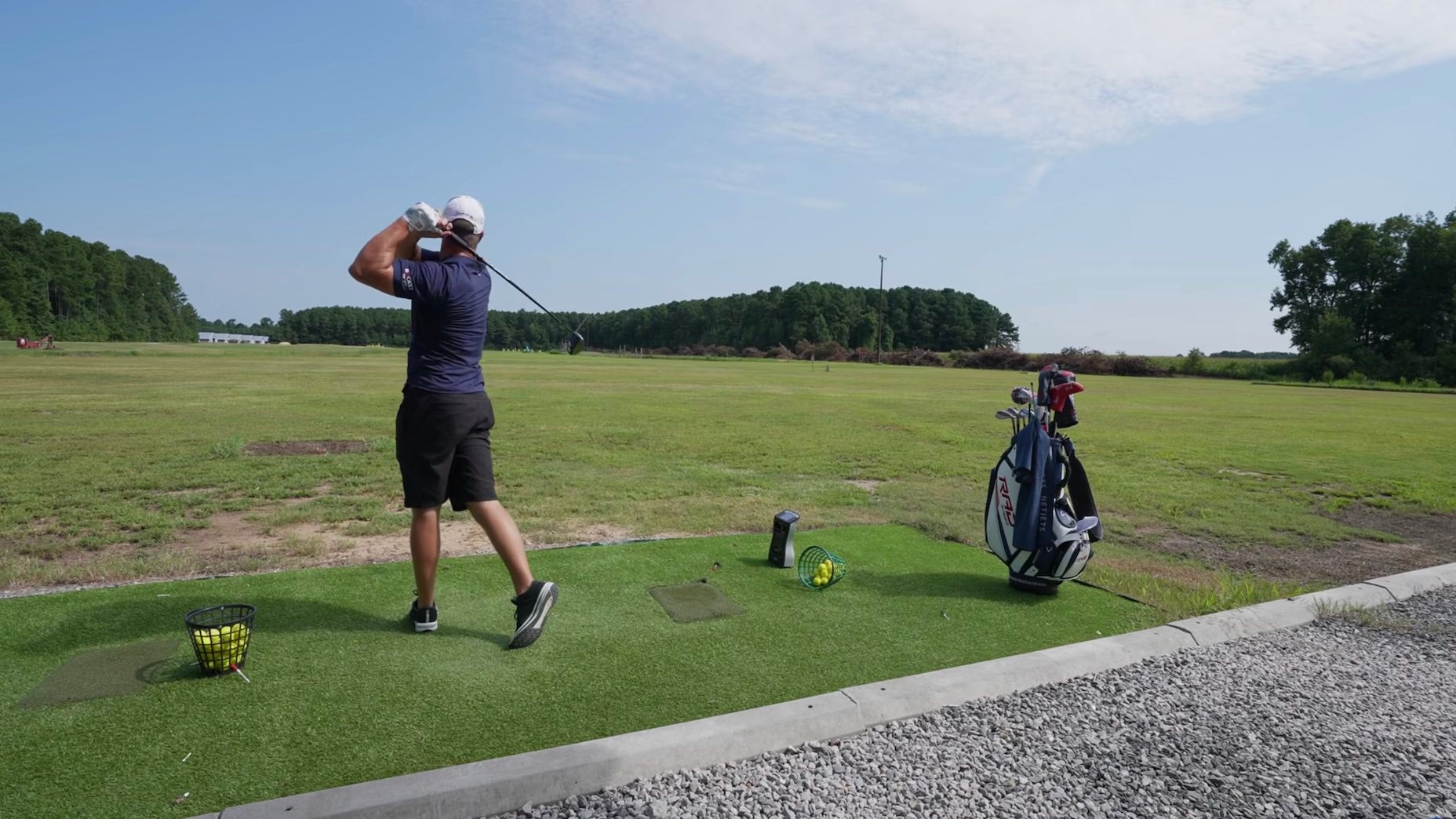
DeChambeau, no surprise, is taking his long drive prep seriously.
YouTube
Bryson DeChambeau settles into his usual practice routine as Red Hot Chili Peppers’ “Californication” blares in the background. The Northern Trust, the opening event of the Tour’s FedEx Cup playoffs, is only a few days away, but on this particular afternoon, the 27-year-old is chasing an imaginary prize on a non-descript range in Newton Grove, N.C.
DeChambeau takes ferocious cuts with a Cobra King RadSpeed driver — “to amp himself up,” he says — as his name is announced over a loudspeaker. It’s his turn to approach a section of artificial turf where he’ll take part in a “tournament simulation” against several bashers he’ll likely see when he participates in the upcoming Professional Long Drivers Association World Championship in Mesquite, Nev.
DeChambeau isn’t giving up his day job for a life on the long drive circuit; his Tour goals are still his top priority. But there’s something about going head-to-head against other golfers, driver in hand, that brings DeChambeau immense satisfaction.
“It’s more of an arena environment with massive speakers pumping music and energy drinks to get you amped up,” DeChambeau told GOLF.com at the Tour Championship, two weeks after his session in North Carolina. “We’re going up against the next guy. It’s not necessarily playing against the golf course; I’m trying to be faster than that guy. It’s a head-to-head competition, which I personally like and enjoy.
“It’s totally different from the environment on Tour. I appreciate and respect that environment, but the long drive environment is tailored more to what I like to do because you can say things and do things that are a little different than out here.”
Unlike the rest of his Tour peers who were focused solely on winning the FedEx Cup and making a last-ditch effort to impress U.S. Ryder Cup captain Steve Stricker, DeChambeau has been juggling an extra ball since he announced his involvement in the long drive event, becoming the first full-time PGA Tour pro to compete in Nevada.
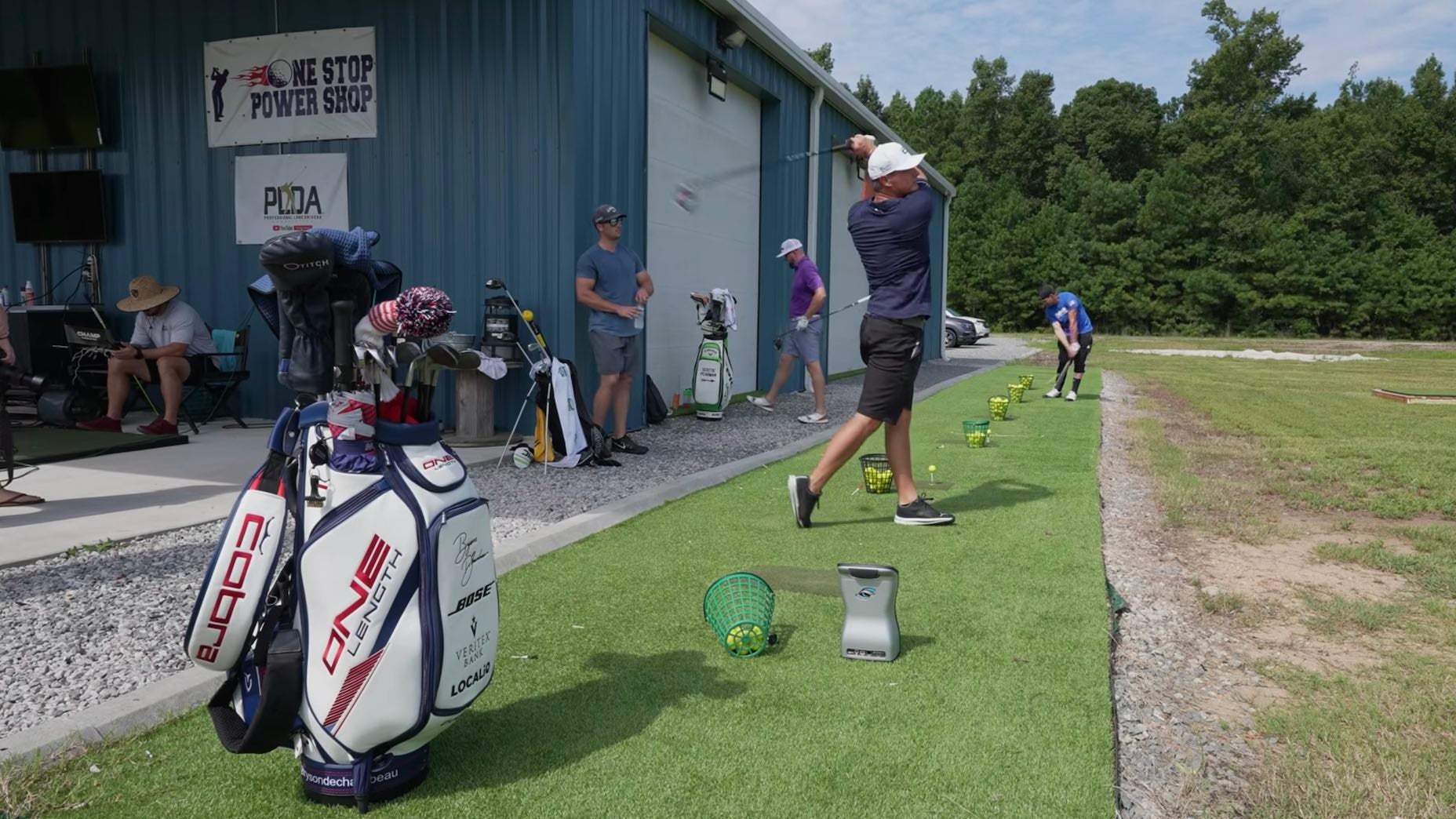
DeChambeau pounding balls in North Carolina.
YouTube
DeChambeau has aspirations of competing at the highest level in both arenas, which is why he’s been increasing his speed training sessions and making trips to remote parts of North Carolina to go through “two-a-days” — two 90-plus-minute speed training sessions in the same day — and glean insights from other members of the long drive community at Bobby Peterson’s One Stop Power Shop. (It’s hard not to think of Rocky getting ready for Drago in the wilds of Siberia.)
“Inside that metal building, there’s endless amounts of knowledge about equipment, as well as the technique, emotions and adrenaline that go into long drive,” DeChambeau said. “You’re talking about maxing out PR’s [personal records] in the gym. It’s the same sort of thing you do with speed training. When you hit that new number, everybody goes nuts. It’s just a cool environment to be a part of.”
While the long drive atmosphere might be a getaway of sorts for DeChambeau, it’s proving to be equally as grueling (mentally and physically) as his Tour gig — if not more so. The tape on his hands from his speed training sessions is proof that he’s pushing himself to new limits to gain more speed.
How are they training to see those speed gains? I’ve been inquiring a lot to see what they think.
“My hands are wrecked from it,” DeChambeau said as he showed off calluses on his palms. “People don’t realize how difficult long drive really is. In golf, it’s the one thing where you can judge your accomplishments by a number. Not necessarily by going out and playing golf, because you can catch a sprinkler head or catch a bad break or bad wind. On Flightscope, you can see the ball speed number. And when you obtain a ball speed number, it’s so different and unique. It’s like a shot-putter shot-putting a new record number. You’re trying to find that full potential to break through.”
Most weeks on Tour, DeChambeau’s prodigious length gives him an advantage over nearly every pro in the field. But as he learned during his time in North Carolina, there’s a sizable gap between “Tour long” and “long drive long.” After eclipsing 211 mph ball speed during a 90-minute session, DeChambeau watched as Reid Russell, a long drive specialist who works in business development for a land surveying company, unleashed a missile that topped 214 mph ball speed — with one swing.
DeChambeau knows he needs to get faster. His current plan is to continue speed training sessions six days a week until the Ryder Cup, and then see where he’s at after the biennial matches.
“How do I train my body in a way where those guys are training the same way and they’re seeing speed gains? That’s what I’m trying to figure out,” he said. “How are they training to see those speed gains? I’ve been inquiring a lot to see what they think.”
For DeChambeau, he’s hoping Cobra and LA Golf Shafts can figure out part of the puzzle. The two equipment manufacturers have been working furiously behind the scenes cranking out DeChambeau-specific prototypes to fit his needs. For LA Golf, the answer appears to be a 48-inch prototype shaft that’s considerably softer than what he currently plays to achieve a whip effect.
“The shaft won’t be as accurate,” DeChambeau said, “but that’s not the priority. What’s important is the shaft won’t change my spin rates, which could equate to a distance loss. It’s all about creating more effortless speed.”
Cobra, on the other hand, is trying to get a handle on how to calculate DeChambeau’s speed gains. The Golf Labs robot they currently use during prototyping phase can only get into the low 120 mph for clubhead speed, which is more than 20 mph slower than DeChambeau’s peak numbers.
It’s all about creating more effortless speed.
“We’re trying to figure out how to ballpark performance at these speeds,” said Tom Olsavsky, Cobra’s vice president of research and development. “We’re doing more robot testing with different face radii to figure things out for Bryson. Milling these different face radii would be easy if you were working with anyone other Bryson. With him, the challenge is you can’t take standard head casting and put in different radii. When you do that, you’re changing edge conditions. So we have to account for those speeds during the design process and use a thicker face plate to make a flatter radius for toe shots, which has more gear effect. We’re still working with those radii to find the best one in each of those hit locations. Part of that is just tweaking them along the way.”
As for DeChambeau’s current driver setup, it seems to be going in the right direction. While DeChambeau didn’t walk away with the imaginary trophy, he managed to grind out a second-place showing in the four-man semi-finals, good enough for a spot in the simulated finals against, you guessed it, Reid Russell, who exceeded 370 yards in every round of the competition.
Russell came out victorious in the end, but the event still left a lasting impression on DeChambeau.
“I’ve never had a golf experience like that,” he said. “It was thrilling. In my eyes, long drive is a very important part of the game. I’d consider it to be the home run derby for golf, and I think it needs to be part of the entertainment spectrum.”
Even with the Ryder Cup approaching, DeChambeau doesn’t anticipate slowing down with his next big event two weeks out. Asked how he’s going to handle balancing team duties in Wisconsin with his speed training, DeChambeau shrugged and grinned.
“I do it every week,” he says. “Is it daunting? Hell yeah. At first, when I was trying to do it last year, it was very scary. But now that I’ve been through it and experienced the worst pains from it, and the most relaxed state of it where I’m not doing any speed training, I know how to kind of balance it — for the most part. Why not go hard at life and do both?”
Want to overhaul your bag for 2021? Find a fitting location near you at GOLF’s affiliate company True Spec Golf. For more on the latest gear news and information, check out our latest Fully Equipped podcast below.


